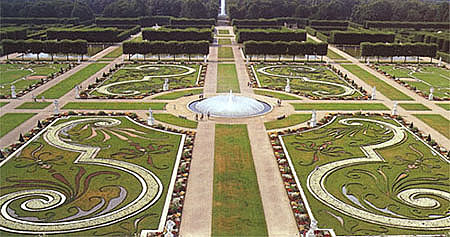I spent the latter two weeks of September in Hannover, Northern Germany. Hannover is in fact the best place to study Leibniz in the world as there within
G. W. Leibniz Bibliothek lies
Leibniz-Archiv which includes, besides the most extensive collection of commentaries on Leibniz in the world, the microfilms of his manuscripts. In itself Hannover is not a very lively city, but it is a good place to work and has a certain charm - in a quiet, conservative way, although in Steintor where my very cheap hotel was located, there was a good amount of barefoot homeless hippies lounging about. And why not, it was over twenty degrees celcius most of the time.
The library is a kind of funny place. It was built probably in the 70's and includes a lot of bright colours (predominantly green and brown) and lots of tables made out of plastic. The library was formely called as Niedersächische Landesbibliothek, the regional library of Lower Saxony, so it is one of the largest ones in Northern Germany.
I spent three months in the library in 2001, so now I took the opportunity (as I was to attend the IX. Internationaler Leibniz-Kongress in Hannover anyways) and spent a week working in the library. I had prepared myself properly beforehand, so I knew that the texts I needed from Leibniz were already published in the Academy series. So as the database is available in the
internet (includes the stuff from the Leibniz-Archiv), I could just print out what I needed beforehand and order away stuff to the reading room. I went through around 30 books a day, looking for interesting articles for different projects going on at the moment of which the most important is Leibniz and emotions.
As I expected, I did not find anything revolutionary, but quite enough interesting material to keep me working for a year at least. In addition, the library has a good collection of journals in the open-shelf-collection, so I could copy published articles. This work was surprisingly heavy and after a day of looking briefly at books and copying stuff from 9-17 I was completely exhausted each night. Some red wine, a baguette and German tv and I was asleep at around nine each night.
At friday of the first week I sent five kilos of copies to Helsinki, crossing my fingers that they arrive safely. And they did. Phew. The weekend went with Flohmarkt (flea market), buying a lot of dirt-cheap vinyl records (of James Last, mostly) and thinking how I will smuggle these all to home (the suitcase weighed 25 kilos, but I got away with it).
Here, btw. are some
photos from the visit. And the congress.
The latter week went witht he congress Natur und Subjekt.
IX. Internationaler Leibniz-Kongress. I had two papers and both went reasonably well, one on
Emotions and the Human Body and one on
Uneasiness and the passions. So I can be happy with the conference as a whole. The emphasis of the conference was on philosophy of nature, as the title suggests and there was in fact a good session on the topic. Another popular topic was Locke and Leibniz (partly because Marcelo Dascal's workgroup on the topic covered two sessions), so there was a lot of interesting stuff to follow. As an afterthought the quality of the conference did not quite match the previous one in 2006, partly because it was arranged in September and a lot of English and American speakers had to teach at that time. But again the participants were given three thick volumes of Vorträge of which I am certain I will find lots of interesting material. One nice thing in the conference the first ever session on Leibniz's theory of emotions and I was lucky enough to be the first speaker of that session.
As is usual in these kinds of conferences, the papers are only part of
the fun. The social life was well taken care of in the evening
receptions and in the Waterloo Biergarten. This was my third
Leibniz-Kongress and at this point my face and name was beginning to
sound familiar (I flatter myself to think this is also somewhat due to
the quality of my papers), so I had an active week, meeting previous
acquintances and making new friends. All in all, an enjoyable week.
Including a few hours in the magnificent Herrenhausen Gärten which was
right next door to the congress (which, I am sorry to say, was not
located in the beautiful main building of the G. W Leibniz Universität
Hannover).

In saturday I took part on the excursion to the Harz mountains where Leibniz made experiments with (vertical) windmills and the like, trying to pump the water off from the mines as efficiently as possible. Led by an expert, we went by bus to many different locations where Leibniz made his experiments and studied his methods. Our expert was firmly of the opinion that the reason why Leibniz failed was the fact that he was not trying to be a part of the team, but tried to be their boss. He even wrote to the chief engineer in French!


